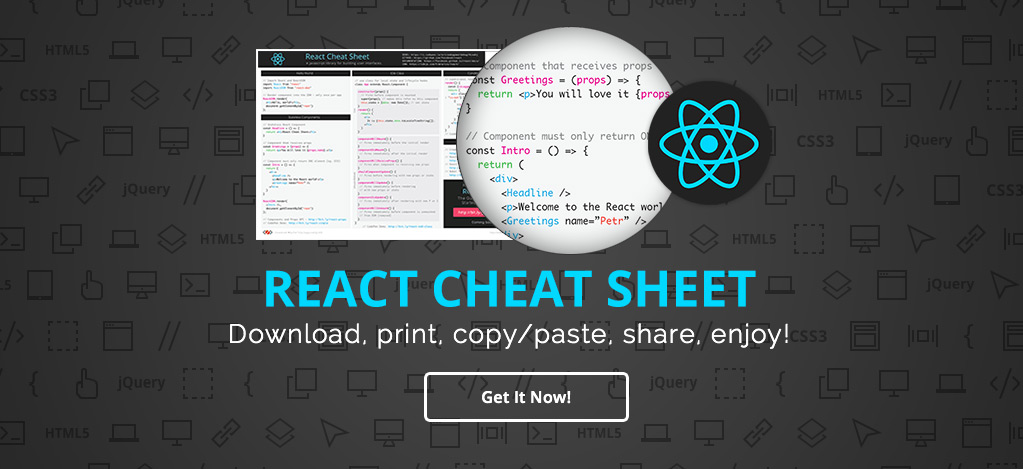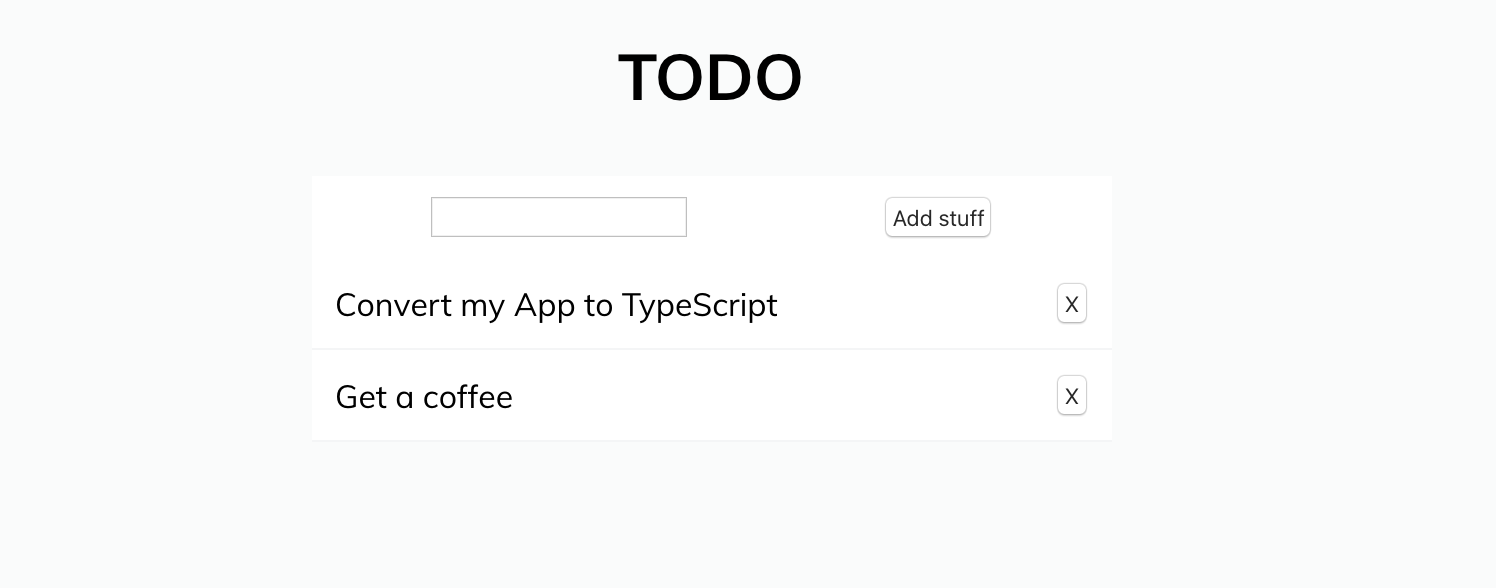- React Typescript Cheatsheet
- Typescript React Cheat Sheet
- Jsdoc Typescript Cheat Sheet
- React Typescript Props
- React Fc
- Typescript React Cheat Sheet Printable

Download safari for mac 10.6. TypeScript is a great language that allows type-checking your code in order to make it more robust and understandable.
React typescript cheat sheet; react.fc typescript; typescript cheat sheet 2020; typescript cheat sheet; react.fc typescript props; typescript cheatsheet; Learn how Grepper helps you improve as a Developer! INSTALL GREPPER FOR CHROME. More “Kinda” Related C# Answers View All C# Answers ». All React + TypeScript Cheatsheets. The Basic Cheatsheet ( /README.md) is focused on helping React devs just start using TS in React apps. Focus on opinionated best practices, copy+pastable examples. Explains some basic TS types usage and setup along the way.
In this guide, I will lead you in setting up TypeScript types on React hooks (useState, useContext, useCallback, and so on).
- TypeScript React Cheat Sheet. TypeScript is a typed superset of JavaScript that compiles to plain JavaScript. This is a list of TypeScript types generated from the declaration files for react, react-dom, react-native and other libraries in The script to generate this list is on github.
- The Full React Native Layout Cheat Sheet. How To Add Props To Styled Components in React.js with TypeScript. IoT Raspberry Pi LED Controlled using Google Flutter Mobile App.
- Good understanding of React; familiarity with TypeScript Types (2ality's guide is helpful. If you’re an absolute beginner in TypeScript, check out chibicode’s tutorial.); having read the TypeScript section in the official React docs.; having read the React section of the new TypeScript playground (optional: also step through the 40+ examples under the playground's Examples.
Sorry for the interrupt!
If you're interested in learning TypeScript or React in a comprehensive way, I highly recommend these bestseller courses:
> Understanding TypeScript - 2020 Edition
> React - The Complete Guide (incl Hooks, React Router, Redux)

Let's dive in
Set types on useState
React Typescript Cheatsheet
The useState hook allows you to manage state in your React app. It's the equivalent of this.state in a Class component.
To set types on useState hook, you need to pass into <> the type of the state. You can also use union type like this <number | null> if you don't have an initial state.
Set types on useRef
The useRef hook returns a mutable ref object that allows accessing DOM elements.
As you can see, the way useRef receives types is the same as the useState hook. You just have to pass it into the <> - and, if you have multiple type annotations, just use union type as I do here.
Set types on useContext
useContext is a hook that allows accessing and consuming a given Context in a React app.
Here, we start by creating the IArticle interface that is the type of our context.Next, we use it on the createContext() method to create a new context, and then initialize it with [] - you can also use null as an initial state if you want too.
With that in place, we can now handle the state of the context and set the type on useContext in order to expect an array of type IArticle as value.
Set types on useReducer
Typescript React Cheat Sheet
The useReducer hook helps to manage more complex states. It's an alternative to useState - but keep in mind that they are different.
Here, we start by declaring the action types that allow handling the counter. Next, we set respectively two types for the reducer function and the counter state.
Jsdoc Typescript Cheat Sheet
The reducer expects a state of type ICounter and an action of type IReducer. With that, the counter can now be handle consequently.
React Typescript Props
The useReducer hook receives the reducer function and an initial state as arguments and returns two elements: the state of the counter and the dispatch action.
To set the type for the values returned by ueReducer - just pass into the <> the type of your data.
With that in place, the counter can now be incremented or decremented through useReducer.
React Fc
Set types on useMemo
The useMemo hook allows you to memorize the output of a given function. It returns a memoized value.
Typescript React Cheat Sheet Printable
To set types on useMemo - just pass into the <> the type of data you want to memorize.Here, the hook expects a string as a returned value.

Set types on useCallback
The useCallback hook allows you to memorize a function to prevent unnecessary re-renders. It returns a memoized callback.
Here, we declare the CallbackType type that is using as type on the callback we want to memorize.It expects to receive parameters of type string and should return a value of type void.
Next, we set that type on useCallback - and if you pass a wrong type to the callback or the array of dependencies - TypeScript will yell at you. Webex download for mac free.
Thanks for reading Sketchup 2017 free download for mac.

